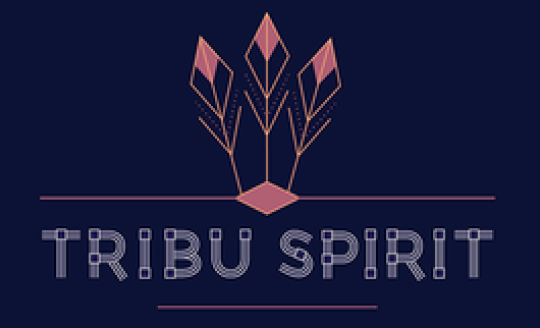In the realm of Attention Deficit Hyperactivity Disorder (ADHD) management, individuals often find themselves navigating a myriad of treatment options, from conventional medications to behavioral therapies.
However, amidst this landscape, a growing interest has emerged in the utilization of herbal remedies as a means to alleviate symptoms associated with ADHD.
In this article, we'll delve into the potential benefits and best practices associated with using herbs in this manner.
Understanding ADHD
Attention Deficit Hyperactivity Disorder (ADHD) is a neurodevelopmental disorder characterized by challenges with:
- Attention: Difficulty focusing and staying on task.
- Hyperactivity: Excessive movement or restlessness.
- Impulsivity: Acting without thinking things through.
ADHD can significantly impact daily life, affecting individuals' academic performance, work productivity, and social interactions. While there is no cure, various evidence-based treatments can effectively manage symptoms.
Herbal remedies have been used for centuries to treat various ailments, with some herbs showing potential to alleviate symptoms of ADHD.
Popular Herbs to Use for ADHD

Several herbs have been identified for their calming and focus-enhancing properties, making them candidates as herbs to use for ADHD. Below are some of the most commonly mentioned in this context:
Hapé
With Hapé, the mind becomes calm, attentive, and grounded. There are various types using different blends of herbs, so there is something for everyone. Each type of hapé is produced from a different plant and is infused with different prayers, giving them distinct characteristics. Tribu Spirit carries a broad assortment of hapés in our shop for a variety of applications.
Tulsi (Ocimum sanctum)
Also known as Holy Basil, tulsi is revered for its adaptogenic properties, which may help alleviate stress and improve cognitive function. Using tulsi leaves can provide a calming effect, making it potentially beneficial for individuals with ADHD.
Ashwagandha
Ashwagandha is a powerful herb known for its ability to reduce stress and anxiety, enhance focus, and promote overall well-being. Using ashwagandha may help improve attention span and concentration, making it a popular choice among individuals managing ADHD symptoms.
Lion's Mane (Hericium erinaceus)
Lion's Mane is a unique mushroom known for its neuroprotective and cognitive-enhancing properties. Using Lion's Mane may support brain health and improve cognitive function, potentially benefiting individuals with ADHD by enhancing focus and mental clarity.
Ginkgo (Ginkgo biloba)
Ginkgo is one of the oldest living tree species and is renowned for its ability to improve circulation and enhance cognitive function. Ginkgo leaves may help improve memory, attention, and concentration, making it a valuable herb for individuals with ADHD.
Brahmi (Bacopa monnieri)
Brahmi is a traditional Ayurvedic herb known for its memory-enhancing and cognitive-boosting effects. Brahmi may help improve cognitive function, reduce mental fatigue, and enhance focus, making it beneficial for individuals with ADHD seeking natural remedies.
Velvet Bean (Mucuna pruriens)
Velvet Bean, also known as Kapikachhu, contains high levels of L-dopa, a precursor to dopamine, which plays a crucial role in mood regulation and cognitive function. Velvet Bean may help increase dopamine levels in the brain, potentially improving attention, motivation, and focus in individuals with ADHD.
How to Use Herbs Safely and Effectively
When using herbs for ADHD management in the form of teas, tinctures, or smudging, it's essential to do so safely and responsibly. Here are some tips for ensuring a safe and effective experience:
Choose High-Quality Herbs
When selecting herbs, it's crucial to opt for organic, pesticide-free varieties sourced from reputable suppliers. This ensures that the herbs are free from harmful chemicals and retain their potency, maximizing their therapeutic benefits.
Moderation
Begin with small quantities of herbs and gradually increase as needed to avoid overconsumption and potential adverse effects. Using herbs excessively may diminish the therapeutic effects, so it's essential to practice moderation and listen to your body's cues.
Combining Herbs with Other ADHD Management Strategies

Integrating herbs into a comprehensive ADHD management plan can enhance their effectiveness. Here are some complementary strategies to consider:
Healthy Lifestyle Habits
Regular exercise, ample sleep, and a nutrient-rich diet are essential for supporting overall brain health and managing ADHD symptoms. Prioritizing these habits can improve mood regulation, attention, and cognitive function.
Mindfulness Practices
Mindfulness practices offer effective strategies for improving focus, impulse control, and organizational skills in individuals with ADHD. Integrating these into daily routines can empower individuals to manage symptoms better and enhance overall well-being.
Medication
While medication prescribed by a healthcare professional may be necessary for managing ADHD symptoms, herbs can complement medication under medical supervision. Working closely with healthcare providers to find the right treatment approach ensures optimal symptom management and improved quality of life.
Transform Your ADHD Management with Tribu Spirit's Herbal Elixirs
Embark on a journey of holistic well-being with Tribu Spirit's premium selection of natural remedies, crafted to nurture your body and soul. Our products are thoughtfully formulated to promote balance, vitality, and inner harmony.
Ready to experience the transformative power of nature? Explore our collection today and discover the beauty of holistic living with Tribu Spirit. Elevate your wellness journey and embrace a life of vitality, serenity, and abundance.
Experience the Tribu Spirit difference – your path to holistic well-being starts here.
Conclusion
The exploration of herbs to use for ADHD offers a fascinating glimpse into the potential of natural remedies to support conventional treatments. They present an additional option for those seeking alternative or complementary approaches to managing ADHD symptoms.
As always, it's crucial to approach these remedies with caution, consult healthcare professionals, and prioritize responsible use. With the right guidance and a mindful approach, herbs may play a role in a holistic strategy for managing ADHD, offering a bridge between traditional and modern wellness practices.

